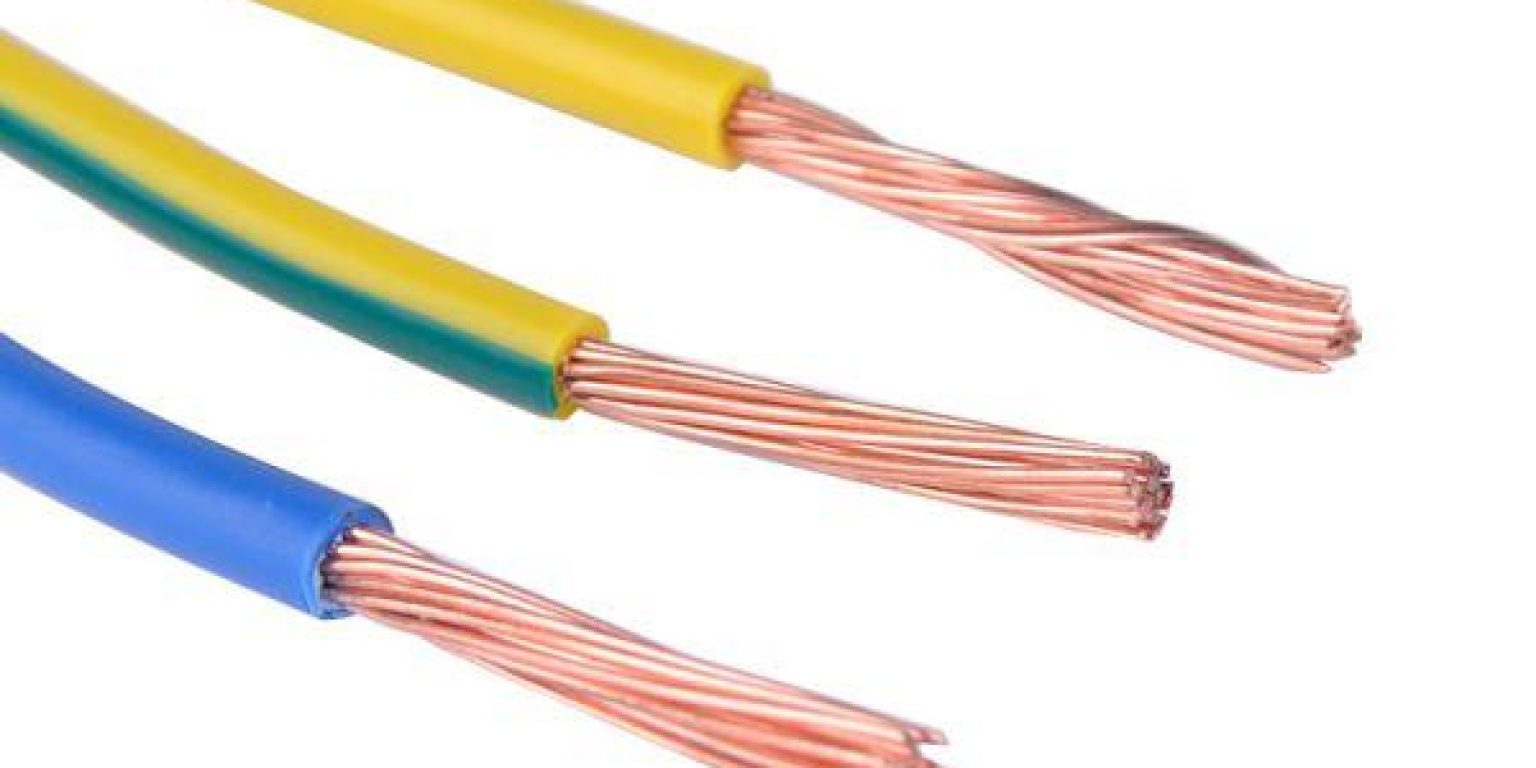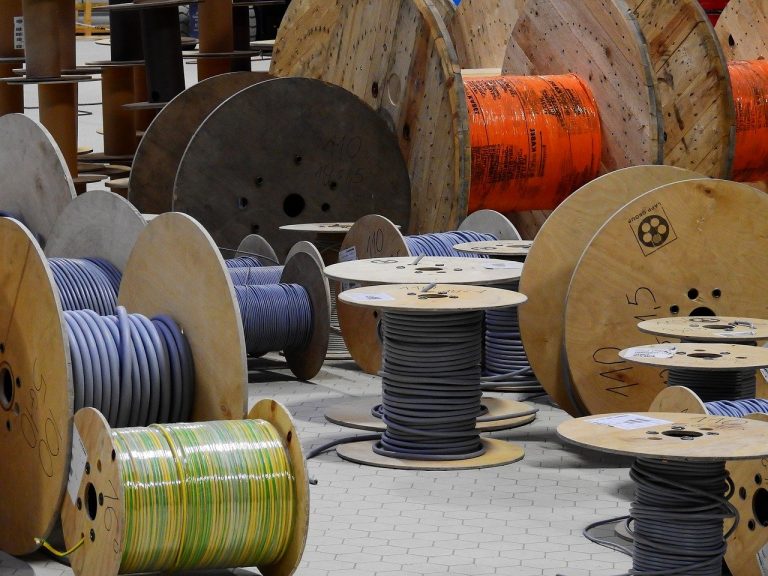When shopping for electrical wire, you have choices – including stranded wire or solid cable, THHN or THWN. However, which one you end up buying might make the difference between success and failure to your project. Typically, your decision to use stranded wire vs solid wire depends on several factors, including the type of application and the environment of the project.
In this Stranded Cable Buyers Guide, we’ll address various factors to consider when deciding whether it’s best to buy stranded or solid wire. We’ll also discuss what the difference is between each of those types, and address the question about which is better, solid or stranded wire for house wiring.
1.What is stranded wire?
Stranded wire cable comprises of a core that’s made from multiple individual wires that manufacturers bundle together, braided and twisted, and then wrapped inside a sheathing or jacket to form a single stranded cable. Usually, these cables use a two-number specification to identify them. For instance, a 7×12 cable will indicate a cable with 7 strands of 12 gauge wire.
Unlike its cousin, the solid wire, stranded products have more flexibility, and deliver higher resistance to metal fatigue. Typically, stranded wire types are the product of choice for printed circuit manufacturers. That’s because using solid wire for such applications leads to greater stress on the circuits during the manufacturing process.
You also see stranded wire used in other applications, such as computer mouse cables, welding electrode cables and AC line cords. While electricians may use both solid or stranded wire for house wiring, some applications, such as wiring for thermostats and security cameras use significant amounts of Stranded cable.
2.What is better stranded wire or solid wire?
The answer to which type of wire is better, stranded or solid wire, is- it depends? So, what does it depend upon? The type of application you are wiring. For instance, because of the inherent ruggedness of their construction, solid wire may be a better choice in environments prone to vibrations, or where the surface where the wire is installed experiences lots of friction and tension.
Using a stranded wire gauge, on the other hand, is a better choice where the cabling environment is stable. For example, using stranded copper wire makes great sense when wiring a home inside drywall or in attics. However, for externally-exposed applications, solid wire might be the better choice. That’s because stranded wire is more flexible in its properties, so its easier to push it through curved walls and winding crawlspace in attics and basements.
3.Difference between solid wire and stranded wire?
Electricians often must decide whether to use solid or stranded wire for house wiring, especially when it comes to specific types of applications – like wiring a thermostat or connecting powerlines to furnaces and high-heat generating cooking appliances.
For example, what’s the difference between a 12 gauge wire that’s made of a solid core versus one with stranded core. They’re both 12-gauge, so what’s the difference? To make the right choice as to whether to use stranded or solid wire, it’s important to understand the difference between the two.
Stranded wire, as is highlighted in the image on the right (red) is constructed from multiple strands of thin individual wires that are braided together (like a rope) to form a single conductor. The thickness of the individual strands depends on the stranded wire gauge chosen for the application. When it comes to solid wire, like in the image to the left (white), it is made from a single, solid core of continuous material.
Another difference between stranded versus solid wire is the flexibility of the two types of wires. Solid wires are less flexible, while a stranded wire has greater flexibility. Also, when understanding the difference between wire vs cable, electricians must realize that solid wire has the tendency to break if it is flexed repeatedly. It’s stranded counterpart, however, is more resilient to flexing. Then there’s the matter of tension and strength. Using a stranded wire for applications where there’s a lot of pulling and stretching may cause the wire to break. On the other hand, solid wires are less likely to break when pulled or tugged during installation.
4.What is thhn stranded wire
Stranded wire types are available in various specifications and standards, and THHN stranded wire is one such type. THHN stands for Thermoplastic High Heat-resistant Nylon coated wire, and it may be available as either stranded or solid wire. They are available as either aluminum or stranded copper wire, and are often covered in polyvinyl chloride (PVC) insulation with an additional nylon jacket, and rated according to the American Wire Gauge (AWG). So, for instance, you may find copper or aluminum 12 gauge wire labelled as THHN.
THHN Stranded Cable is used in either dry or damp/wet applications. For dry use, it is rated at 90 degrees Celsius, and has a 75 degrees Celsius rating for wet applications. THHN cables for later use (wet) are labeled as “THWN”, where the “W” indicates wet use.
THHN stranded cable is a popular wire of choice for building contractors, but it also has used in wring of control circuits, machine tools and certain types of appliances. Because of its cost-effectiveness, many electrical contractors prefer THHN stranded wire vs solid wire labeled as XHHW.
5.Where to buy good Stranded Wire?
Here at ZW Cable, we have many years of manufacturing a wide variety of wires, including Stranded Cable. Whether you wish to source your cables for residential buildings, industrial appliance cabling or for circuit board applications, we have the right cables for the job. We carry a broad variety of stranded wire types and offer them for various sizes, such as 12 gauge wire or 4-gauge cables.
As a cable manufacturer of repute, we implement the highest standards of QA on every cable we produce. Your choice of stranded versus solid wire may depend on what application you source the wires for, but our standards for high quality apply to all wires and cables we manufacture. So, if you are looking to buy good quality stranded wire, at highly competitive price points, then you’ve come to the right place!
Last Updated on November 4, 2022 by Richard




